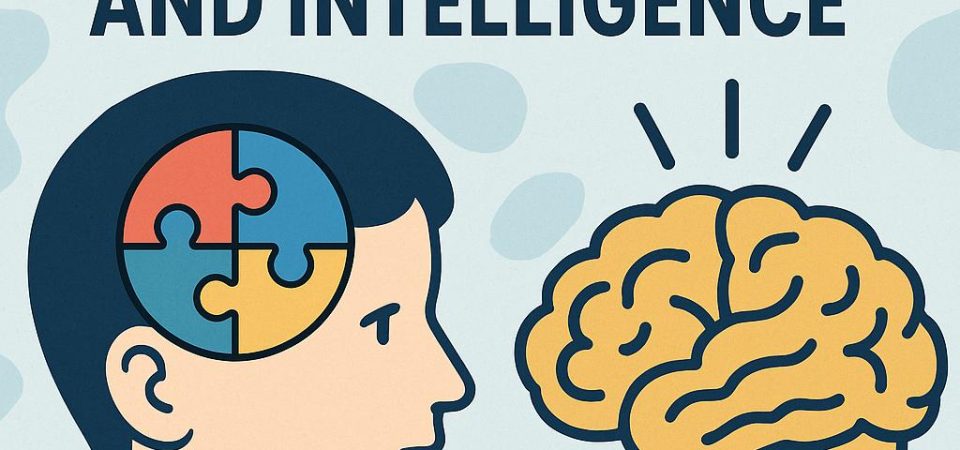The Relationship Between Autism and Intelligence
Autism Spectrum Disorder (ASD) is a complex neurodevelopmental condition characterized by challenges in social communication, restricted interests, and repetitive behaviors. One of the most discussed aspects of autism is its relationship with intelligence, which encompasses a diverse range of perspectives and scientific findings.
Understanding Autism Spectrum Disorder
ASD is a spectrum, meaning it includes individuals with a wide variety of symptoms and varying degrees of impairment. Notably, ASD affects individuals differently, and as such, it is crucial to avoid generalizing the characteristics of a particular case to all individuals with autism. Delving into the intricacies of ASD reveals the vast diversity among those diagnosed, reflecting differences in the range of symptoms, challenges, and overall life experiences.
Intelligence Quotient (IQ) and ASD
The relationship between autism and intelligence is intricate. While it is common to measure intelligence using the Intelligence Quotient (IQ), such assessments may not capture the full spectrum of intellectual capabilities in individuals with autism. Traditionally, standardized IQ tests may not accurately reflect the unique cognitive strengths and challenges faced by those on the autism spectrum. This assessment limitation stems from IQ tests being designed to evaluate conventional cognitive abilities, often disregarding atypical intellectual profiles associated with ASD.
Variability in Intelligence Levels
Individuals with ASD can exhibit a wide range of intellectual abilities. For instance, there is a significant portion of the ASD community that demonstrates high levels of cognitive functioning.
High Functioning Autism: Some individuals with autism have average or above-average intelligence. This group is often referred to as having “high functioning” autism and may exhibit exceptional skills, particularly in areas such as mathematics, music, or computing. Often, these individuals can perform complex tasks, articulate thoughts clearly, and solve challenging problems. Their intellectual abilities, particularly in specialized areas, challenge the traditional narratives surrounding autism as a purely disabling condition.
On the other hand, there are individuals who face pronounced cognitive challenges.
Challenges in Intellectual Functioning: Conversely, another subset of individuals with autism may present with intellectual disabilities, necessitating additional support for learning and daily functioning. For these individuals, cognitive limitations can interfere with various aspects of life, forming barriers that demand comprehensive support and targeted interventions to nurture their potential.
Unique Cognitive Strengths
Despite traditional challenges posed by ASD, many individuals possess unique cognitive strengths. These may include:
Exceptional Attention to Detail: People with ASD often exhibit a remarkable ability to focus on details. This can translate into an aptitude for tasks that require precision and careful observation. Their ability to notice minute details that others might overlook often serves them well in professions requiring detail-oriented work. Tasks involving pattern recognition or intricate analysis often see individuals with autism excelling and bringing forth unique solutions.
Strong Visual and Spatial Skills: Many individuals on the autism spectrum have heightened visual and spatial abilities, which may contribute to success in fields such as engineering or design. This enhanced spatial awareness enables them to conceptualize and manipulate structures in their minds far more effectively than typical individuals, propelling them toward success in disciplines reliant on such skills.
Research and Implications
Numerous studies continue to explore the nuanced relationship between autism and intelligence. Research suggests that understanding this relationship requires moving beyond traditional IQ assessments to consider a broader range of cognitive abilities and potential. Researchers argue for multifaceted evaluation systems that account for individual strengths and challenges, acknowledging variations within the autism spectrum that conventional intelligence tests overlook. More information on this can be found in academic journals and research publications.
The implications of these research endeavors are considerable. They highlight the need for educational and occupational environments to adjust to the cognitive profiles of individuals with autism. By tailoring support mechanisms and opportunities to individual cognitive capabilities, societies can harness the unique talents within the autism community, fostering environments of inclusion and diversity.
Conclusion
The relationship between autism and intelligence is multifaceted and cannot be easily characterized. Recognizing the diversity of intellectual abilities in individuals with autism is essential to fostering a supportive and inclusive environment. By embracing the unique strengths associated with ASD, society can better appreciate the contributions of individuals on the autism spectrum.
Understanding intelligence in the context of autism is not merely an academic exercise but a societal responsibility. It involves deconstructing preconceived notions about cognitive abilities and acknowledging the wide-ranging intellectual landscape within the autism community. Recognizing these diverse abilities and strengths can pave the way for more accurate assessments and effective support systems. As societies become more aware of and knowledgeable about ASD, they are better positioned to create inclusive frameworks that promote equality and appreciation for the diverse skills and abilities individuals with autism bring to the table.
It is essential to engage with the complexities of intelligence within the autism spectrum, continuously seeking informed discussions and solutions that consider both individual potential and challenges. This effort should be reflected in policies, educational practices, and community engagement, wherein ASD individuals can thrive and contribute meaningfully. As research advances, so too should societal understanding and acceptance, fostering a world where every individual, irrespective of cognitive ability, is given the opportunity to succeed and express themselves freely.
Moving forward, embracing intelligence diversity and promoting broader understanding within society and scientific communities will ensure that individuals with autism are valued for their unique perspectives and abilities. This approach not only benefits the individuals but enriches society as a whole, creating a more inclusive and dynamic environment for all.
